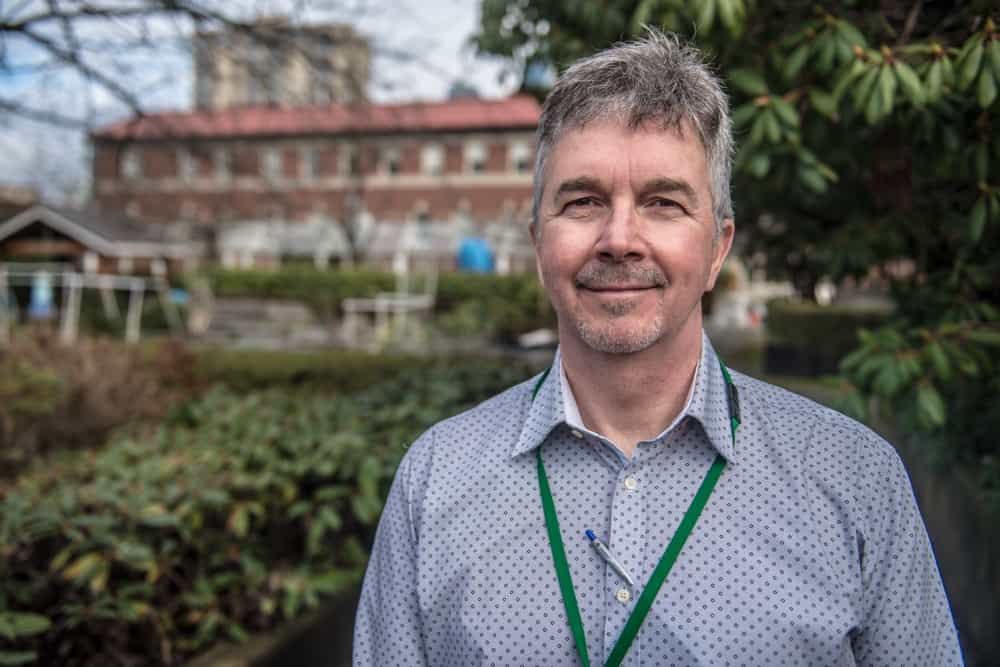This profile of Dr. Mark McLean is Part 4 in a 5-part series on this innovative clinic and a group of its staff members.
Part of a rotating team of lead physicians at the Rapid Access Addiction Clinic at St. Paul’s, Dr. Mark McLean speaks of the constant advancement and ever shifting ground that is addiction medicine. Nevertheless, many key elements of a future vision for the RAAC are clear.
“The vision is for the RAAC, not the Emergency Department (ED), to be what people think of for treatment of addiction. We also envision ourselves as a source of expertise, taking referrals from physicians who are affiliated with St. Paul’s, as well as from our fellow addiction specialists, and offering both inpatient and outpatient care. So the RAAC will be that source of expertise in the province; as well as that source of rapid access for patients.”
Dr. McLean also says the close relationship between the RAAC and the ED will continue at the new St. Paul’s Hospital, which speaks to the goal of addressing the high number of addiction patients that present to the ED (mostly because these individuals do not have a family doctor, so Emergency is where they know they can go). Already, however, patients are seeing that the RAAC is where they need to go, which eases the burden on Emergency.
Given issues of stigma and marginalization, Dr. McLean also points to the similarities between substance misuse today and HIV in the 1980s, when the HIV population encountered such difficulty in accessing the political power structure in order to get resources to support research and treatment.
“Like the early days of HIV,” says Dr. McLean, “this population does not have a strong political voice. We as health care professionals will need to continue to advocate for these patients. Right now, for example, if we can intervene on the fentanyl epidemic and show we are having an impact, hopefully we’ll continue to get resources. But we also need to be prepared to make arguments as to how this will benefit not just this population but also the larger society.”
To illustrate, Dr. McLean again draws parallels to HIV/AIDS.
“Look at HIV. It is now at the Treatment as Prevention™ stage, where research has made the treatment so effective it not only restores health, it lessens your disease to a point where you don’t transmit it. That will receive support because treating people means preventing new cases. I can see a similar thing with addiction. If we can treat the people with the illness, there will be less of a problem, there will be less drugs around, there will be less opportunities for people to get started. So with addiction, too, by treating people with the illness, there will be fewer new cases, and that benefits the larger society.”
With much room (and need) to grow this vital and already impactful program, friends of St. Paul’s Foundation are encouraged to help by making a donation to support the work of the Rapid Access Addiction Clinic.
